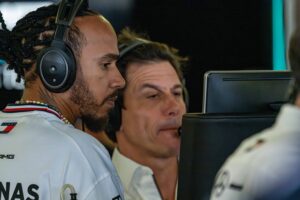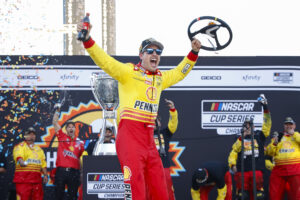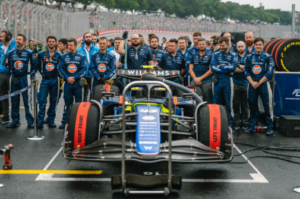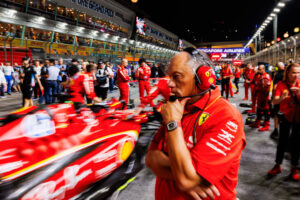The idea of non-championship Formula 1 races in the decades of the past was incredibly common. Managing director Ross Brawn has stated that he wants to see such events return.
Through the 1950s, 60s, and through the 70s, many races run to F1 regulations were often not counted towards the world championship. By the end of the 1980s, the idea of a Grand Prix which did not contribute towards the championship were long-gone. Now, new F1 boss Brawn has told Sky Sports that he wants to see these events return to the calendar.
Brawn’s interview with Ted Kravitz gave us the first insight into the post-Ecclestone era of F1, following Bernie Ecclestone’s reign over the sport coming to an end over the winter as a result of the sale of the rights to the sport to Liberty Media. Immediately, Brawn insisted that his ideas will be more liberal and proactive, instead of the authoritarian, reactive, dictatorship-like Ecclestone era.
One of the ideas which raised eyebrows in this interview was the idea of reviving non-championship rounds, where the likes of new formats and systems could be tried and tested, instead of applying them to the regulations seemingly without thought. The elimination-style qualifying used in the first two rounds of the 2016 season is an idea of something being untested, and flopping in front of the world’s audience.
Non-championship F1 races being brought back comes across as perhaps the most outlandish of all of the proposals Brawn put forward in this interview, although it would appear as if it would take a while before these rounds could happen. But they absolutely can be a major success for F1 and for motorsport as a whole if it is done correctly.
A non-championship round is not new to many series. A good example is the IndyCar race held at Surfer’s Paradise in Australia at the tail-end of the 2008 season. It would be nice to see F1 visit a circuit which is currently not on the calendar for a non-championship round. One obvious candidate would be Imola, which has gone through a major revamp since it last held the San Marino Grand Prix more than a decade ago.
The race could also be situated so that travel and therefore costs are minimised, helping the smaller teams out a bit. For example, if the Italian Grand Prix at Monza is the first race back after the summer break, why not extend the summer break by a week, and have the non-championship round at Imola the weekend before the Italian Grand Prix?
Imola is a great example of a F1-standard circuit which is not on the calendar, but the list of circuits eligible to host F1 races not hosting events already as it stands is on the short side. Would fans also attend a non-championship round so close to the points-scoring round a week later? This should not be ruled out.
Imola is just one example of a circuit F1 could visit. Whilst the list of circuits F1 does not go to which holds the crucial Grade 1 status is on the short side, critically the circuits which do hold this status are nicely dotted around the globe. From Italy to Thailand to Qatar with Spain, Germany, France and of course, the United States all appearing on this list, there is no reason why a non-championship round cannot happen at a different venue each year.
F1 would be able to truly go experimental with a non-championship round. The talks of multiple races during a weekend could be explored, as well as perhaps racing with interim cars (teams tested with interim cars during the 2008 season ahead of ’09). New direction in TV and digital mediums could also be experimented with during this type of round.
This could also be an opportunity for teams to grab headlines. Why not allow three-car teams for these one-off rounds and get teams to run high-profile drivers or exciting, young drivers who are perhaps overdue a F1 start? Why not invite Valentino Rossi or Scott Dixon from their respective series and have them face off against Lewis Hamilton or Fernando Alonso?
A non-championship round should not only be used as a test-bed for potential future regulation changes but should also be used to attract fans who are perhaps not so familiar with F1 but are more familiar with other series. Whilst any hopes of official sessions being broadcast for free on the web are inconceivable, perhaps this is one area where F1 is able to open up as well. Exposure and promotion are vital in today’s world and this would be a grand opportunity for F1 to present itself to the world.
Brawn’s liberal, thoughtful approach to how F1 should be is massively refreshing to see, and is filling fans with a lot of confidence for the future of the sport, even if it will take a bit of time. Whether Chase Carey and Sean Bratches operates a similar approach to their respective areas of expertise is yet to be seen, but what is clear, even in the infancy of this new path for F1, is that some very solid and well-received ideas are being explored already, and without the knee-jerk reactions we got so very used to under the Ecclestone reign.






